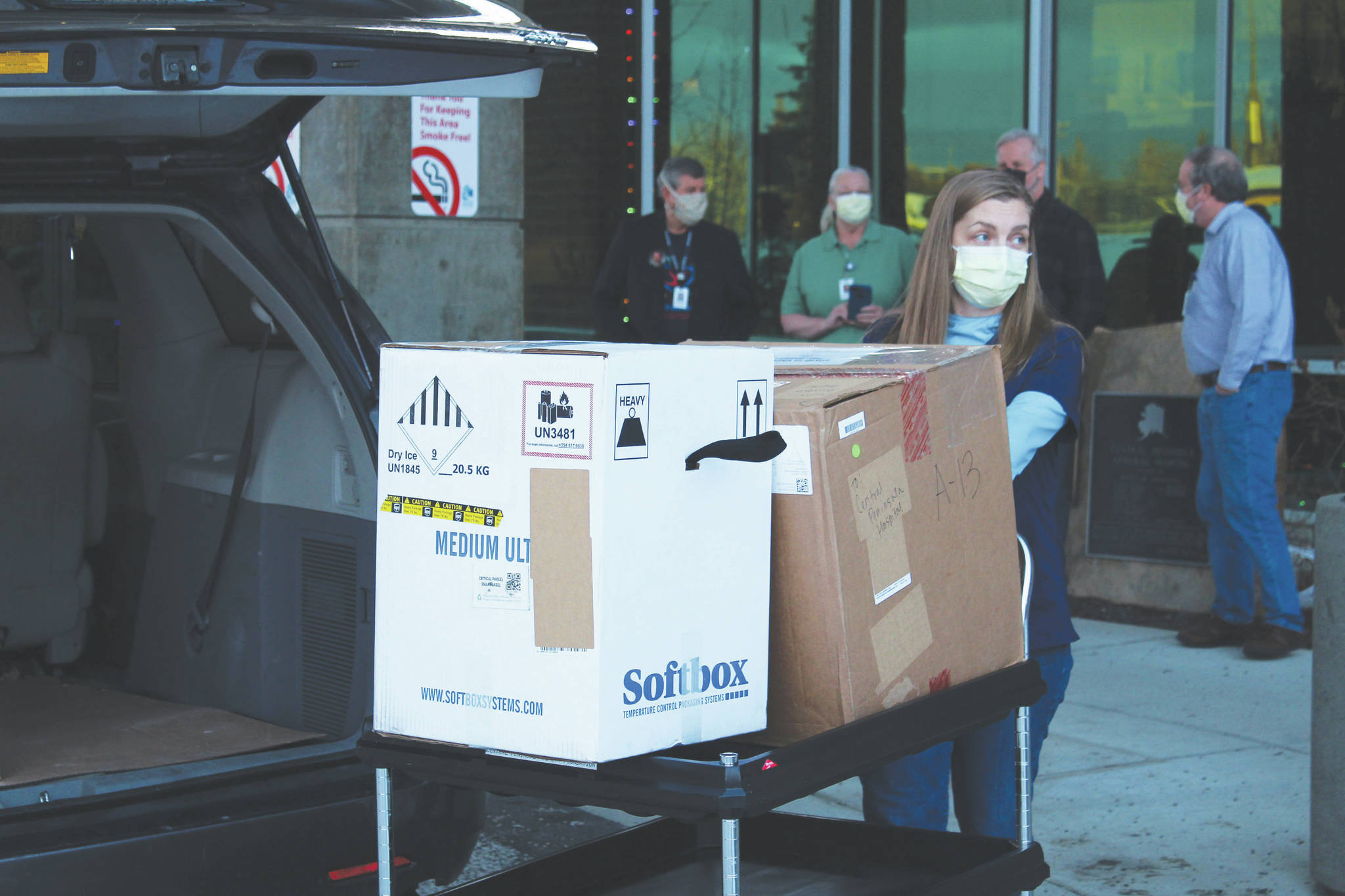As COVID-19 cases tick upward around Alaska, concern among local health care facilities is growing about the more transmissible COVID-19 variants, several of which have been detected in Alaska.
Following a statewide plateau in the number of people testing positive for COVID-19, the number of new cases is growing on the peninsula and statewide. The borough’s average daily case rate for the past 14-days recently passed 10 per 100,000 population, pushing the region from “intermediate” to “high” risk level. Alaska as a whole continues to be considered high risk.
At Central Peninsula Hospital in Soldotna, which responded to a regional surge in inpatients who were COVID-positive last year, External Affairs Director Bruce Richards said that while they are keeping their eye on variants, the number of new cases being reported is also alarming.
“There should always be a concern with rising cases,” Richards said.
Richards said they are especially concerned about the P.1 variant, which was first detected in travelers from Brazil and has been detected in Alaska. Brazil has been hit especially hard by the COVID-19 pandemic, with a reported death count of more than 335,000 that is second worldwide to the United States.
According to the Alaska Sequencing Consortium’s April 6 report, 75 variants of concern have been detected statewide. That includes seven cases of the B.1.1.7 variant first detected in the United Kingdom, 61 cases of the B.1.429 variant, which was first detected in California and six cases of the P.1 variant, among others.
The U.S. Centers for Disease Control and Prevention said Wednesday, for example, that the B.1.1.7 COVID variant, which was first detected in the United Kingdom, is now the most common strain of COVID-19 in the United States.
Hospitals statewide faced uncertainty following the lapse of Alaska’s statewide disaster declaration, which had allowed them to operate overflow and surge spaces if they became overrun. CPH moved into surge space at the end of last year due to an influx of COVID-positive inpatients.
Richards said Wednesday that the hospital was able to clarify with the Centers for Medicare and Medicaid Services about what that means for their operations. Richards said that CMS advised hospitals to use surge space if they need to.
“You just do what you have to do to take care of people,” Richards said. “What else are you supposed to do?”
Richards said CPH is feeling the surge in cases. Richards said Wednesday that there were more hospital employees who were COVID-positive than there had been in weeks and that new cases at Heritage Place Skilled Nursing Facility caused the closure of visitation, again.
New guidance from the CDC last month saw Heritage Place open to visits with more relaxed protocols for the first time in months. Specifically, that guidance allowed residents of long-term care facilities to hug their loved ones, if fully vaccinated.
New cases at Heritage Place have closed the facility back down to visitors, Richards said Wednesday.
One of the solutions, Richards said, is for more people to be vaccinated. The Kenai Peninsula Borough Office of Emergency Management has worked with multiple agencies across the peninsula to help roll out the COVID-19 vaccines, which are free and available to anyone living and working in Alaska.
As of Wednesday, more than 42% of Alaskans eligible to be vaccinated — those 16 and older — had received at least one dose of the COVID-19 vaccine. That is compared to about 36% of Kenai Peninsula Borough residents 16 and older. A survey of state vaccination data as of April 2 found that, when compared to Alaska geographies of like population sizes, the Kenai Peninsula Borough generally ranks higher than Matanuska-Susitna Borough and Fairbanks North Star Borough and lower than Anchorage in the number of people vaccinated across different age groups.
COVID-19 vaccination appointments can be made through the state’s scheduling hub at myhealth.alaska.gov.
State and local health officials continue to encourage all Alaskans to follow mitigation protocols known to slow the spread of COVID-19. Those include frequent hand-washing, wearing a face covering in public places and keeping distance between people from different households.
In the meantime, Richards said CPH is also planning for a potential increase in cases following Easter Sunday, which saw congregate gatherings in church settings across the country.
“We’re not through this,” Richards said.
Reach reporter Ashlyn O’Hara at ashlyn.ohara@peninsulaclarion.com.

